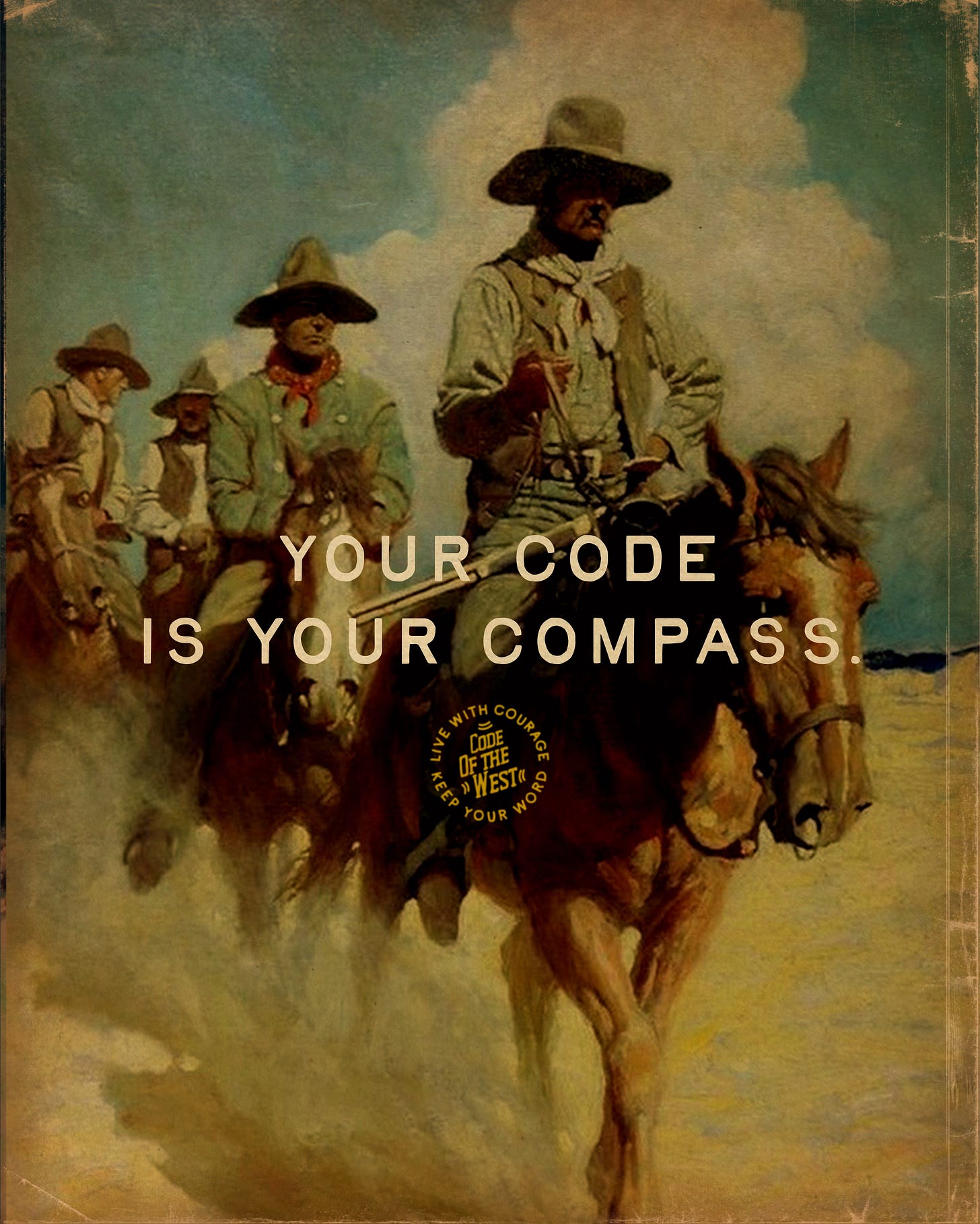Resolutions Fade. A Code Endures.
Every year, millions of people start January with a clean slate and a list of resolutions. Gym memberships spike, planners are filled with big ideas, and there’s an almost tangible energy of optimism in the air.
But by February, something happens: the gyms empty out, the planners collect dust, and most resolutions are quietly abandoned. Not because people didn’t try hard enough, but because resolutions were never built to last.
The Problem With Resolutions
The truth is, resolutions often fail because they focus on actions, not identity. They’re about what you want to do, rather than who you want to become. Resolutions chase short-term outcomes, like losing weight or saving money, without addressing the deeper principles that will sustain those goals when life inevitably gets messy.
Life doesn’t follow a predictable plan. It throws storms your way—unexpected challenges, hard days, and temptations to revert to old habits. Resolutions are too fragile for this kind of unpredictability. They’re built on willpower alone, and willpower has its limits.
So what’s the alternative? It’s not just about setting better goals—it’s about building something bigger, something enduring. It’s about creating a code.
My Journey With Resolutions
For years, I didn’t put much stock in New Year’s resolutions. Professionally, I believed that if something wasn’t working, you didn’t wait to fix it. I was quick to adapt and solve problems in my work life, but my personal life was a different story.
I used to see my personal and professional lives as two entirely separate things. My logic was simple: I was pouring so much of myself into my work that there wasn’t anything left over for personal growth. I didn’t like the fact that I was messy, drinking too much, eating poorly, or gaining weight. I didn’t like that I had no discipline or knowledge about basic things like cooking or creating routines. But I told myself these were sacrifices I had to make to succeed.
Every New Year, I’d convince myself that I’d finally tackle one of these problems. But almost immediately, I’d abandon the plan. A work project would pop up, or the momentum of January would wear off, and I’d tell myself there wasn’t enough time to focus on these “personal” issues.
What I didn’t realize then is that personal and professional are not two sides of the same coin—they’re the same thing. There’s no switch in your head that flips between work and home. How you do anything is how you do everything.
When I finally understood this, it wasn’t just a lightbulb moment—it was a shift in how I approached my goals. I realized that improving my personal life wasn’t separate from my professional success—it was the foundation of it.
I started small. I hated that I was messy, but I had to ask myself why. First, I wasn’t making cleanliness a priority. Second, I realized that my brain worked better in a clean, organized environment. So, I started with something simple: making my bed every morning.
That one habit began to spiral into other parts of my life. I started creating frameworks for discipline and consistency where none had existed before. I’m still working on this, but the biggest lesson I’ve learned is that resolutions are often just symptoms of deeper issues. You can’t succeed without understanding the underlying problem.
You want to go to the gym? What makes you quit? Is it because it’s too hard and your ego can’t handle being bad at something? Are you lacking discipline because you don’t like routines? Most resolutions fail because they don’t address the why behind the behavior.
A Code Endures
A code isn’t a checklist of goals; it’s a compass. It’s a set of principles that guides your actions, regardless of the circumstances. It’s what keeps you grounded when life feels chaotic, and it’s what aligns your daily choices with the person you want to become.
In the Old West, survival depended on having a code. Life was unpredictable, and every decision carried weight. A cowboy’s code wasn’t just a set of rules; it was a promise—to live with courage, act with honor, and ride for the brand. It was their anchor in an uncertain world.
Today, we may not be wrangling cattle or facing the wild frontier, but we face challenges of our own. Social pressures, endless distractions, and the temptation to drift through life all threaten to pull us off course. A code gives you something to hold onto—a steady foundation when the path gets rocky.
Crafting Your Code
Building your code doesn’t mean you abandon your goals. It means you ground them in something deeper. For example:
• Instead of resolving to “work out every day,” your code might include a value like resilience: “I will prioritize my health because strength of body builds strength of spirit.”
• Instead of vowing to “save more money,” your code might reflect mindfulness: “I will steward my resources wisely to align with what truly matters.”
A code isn’t just about achieving—it’s about becoming. It asks you to reflect on the person you want to be and then commit to living by those values, every day.
A Challenge for You
As we step into the new year, I want to challenge you to move beyond resolutions. Take time to reflect on the values that matter most to you. Ask yourself:
• What principles do I want to live by?
• What kind of person do I want to become?
• What will keep me steady when life gets hard?
This year, don’t just chase outcomes—build your foundation. Create your code.
Ready to craft yours? I’m puttting together a free guide to help you build a personal code that endures. It’ll be a simple, powerful way to align your life with your values.
Sign up here.





